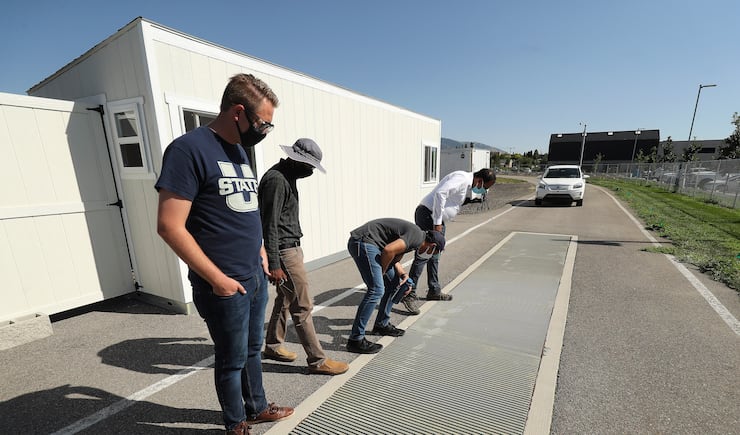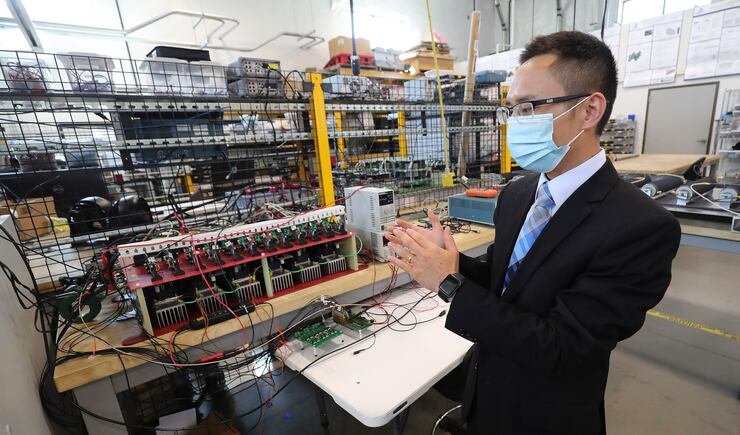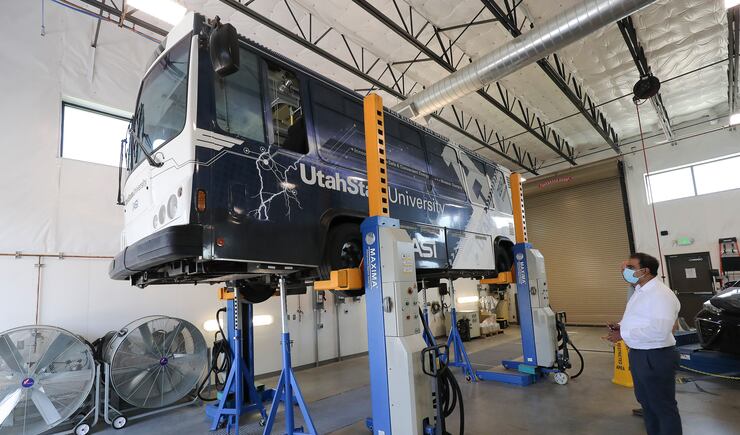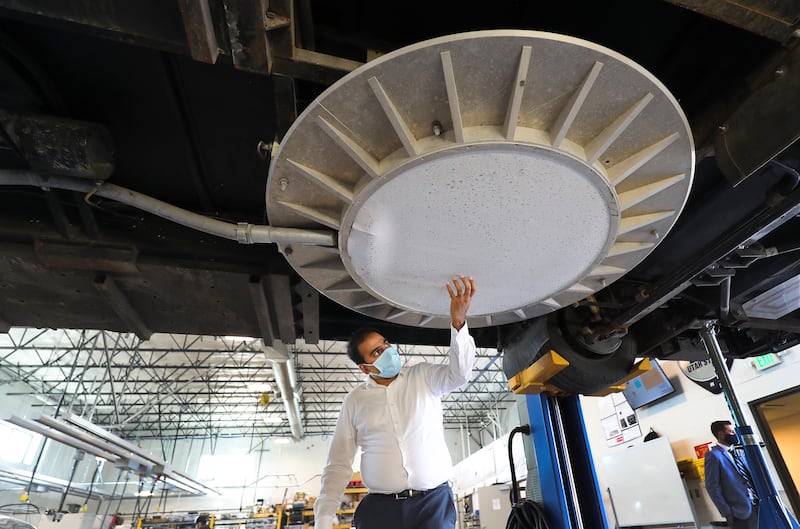LOGAN — Imagine a world where all vehicles are electric and the air quality is vastly improved.
That is the foundation behind a five-year $26 million grant awarded to Utah State University by the National Science Foundation to establish an international research center to advance sustainable, electrified transportation.
The ambitious project, announced Thursday, is being fueled by that $26 million grant that is also renewable to a 10-year $50.6 million effort. Overall, the Engineering Research Center is expected to raise more than $200 million over the next decade through government and industry support.
“The bottom line is the timing is right,” said Regan Zane, a USU professor and director of what is being called Advancing Sustainability through Powered Infrastructure for Roadway Electrification, or ASPIRE.
“There is a need here in the nation for what we are doing,” he said. “This is intended to be a catalyst, a shot in the arm. Let’s get all the industries behind this so we can make this happen.”
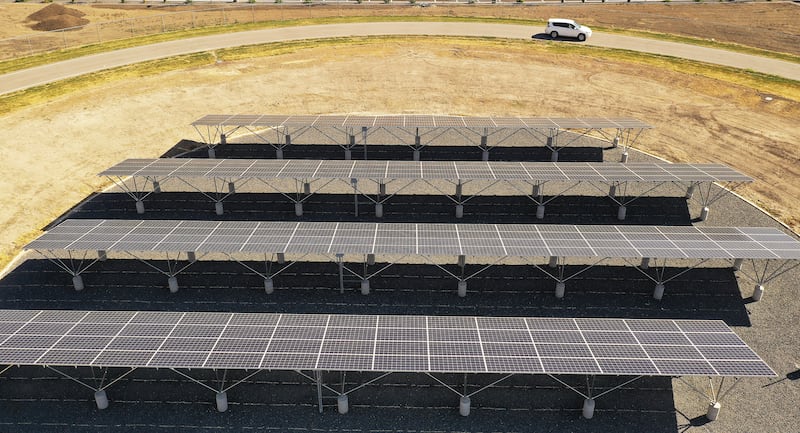
Since joining USU in 2012, Zane has raised more than $30 million in research funding and the science grant brings the total to more than $80 million.
This effort will build on the university’s Center for Sustainable Electrified Transportation, known as SELECT, and the university’s establishment in 2015 of the world’s first electrified track. This solar-powered track is equipped with power transfer coils embedded in the roadway, enabling properly equipped electric vehicles to charge while they’re in motion.
Via this technology, wireless charging reduces the need for heavy battery packs and numerous charging stations.
The funding represents a huge advancement for the Logan university, said USU President Noelle Cockett, and comes when it is needed for air quality and transportation challenges.
“ASPIRE is needed now. It is a bright star at a difficult time,” she said during the announcement of the grant.
“We have been smiling, that is for sure,” Zane said. “This is a phenomenal achievement. There is absolutely no question about it. ... We are at the front of something big.”
The research center is one of four announced this week and the first in Utah in over 30 years.
The Logan university will partner with Purdue University, the University of Colorado Boulder, the University of Texas at El Paso and the University of Auckland New Zealand. Additional partners include researchers at Colorado State University, University of Colorado Colorado Springs, Virginia Tech and Cornell University, and four national laboratories, including the Idaho National Laboratory.

That laboratory, located near Idaho Falls, has done extensive research on electric vehicles and charging capabilities in partnership with Rocky Mountain Power. Global industry partnerships for ASPIRE include more than 45 companies and organizations across the transportation and electric utility industries.
“What I would like to emphasize is that the challenges are the scale, the scope and the size of the industries we are talking about changing. We are talking about not just changing, but we are actually looking at transforming two of the largest industries: transportation and electric utility. It requires so many components.”
The new center is being developed at a time when transportation infrastructure and electric utility providers are at a crossroads when it comes to necessary updates, he said.
“We have seen the challenges in front of us,” Zane said, adding this effort is about changing 100-year old mindsets that dictate how people use roads, pay for roads, maintain them and operate utilities.
“That is why we have been taking this in increments. We take it bite by bite.”
Key to this effort is developing wireless charging technology that is built into roadways and parking facilities.
Zane said it will require an overhaul of the grid and if 100% of the vehicles on the road were electric, it would mean doubling the existing electric grid capacity in the United States.
“The big question is how to do it right,” he said. “We believe that time is now that we have to rethink these new technologies. ... The role of ASPIRE is to create that ecosystem.”
